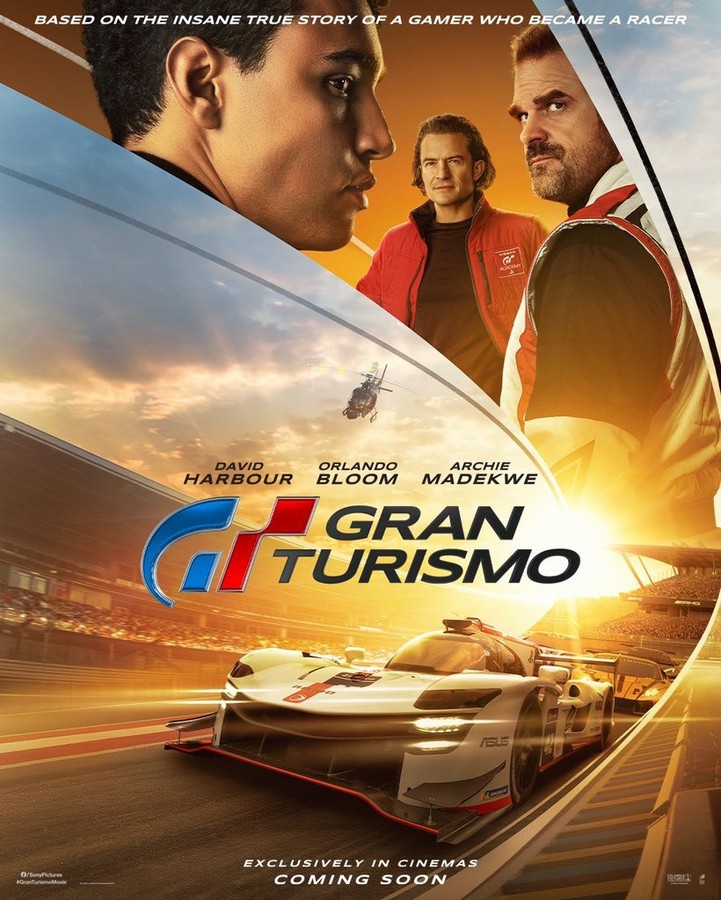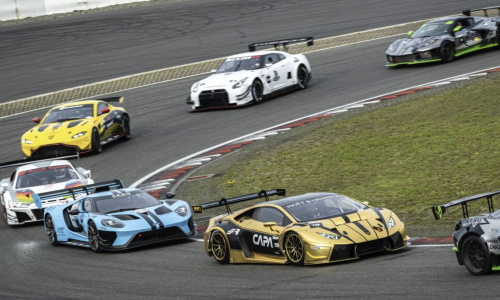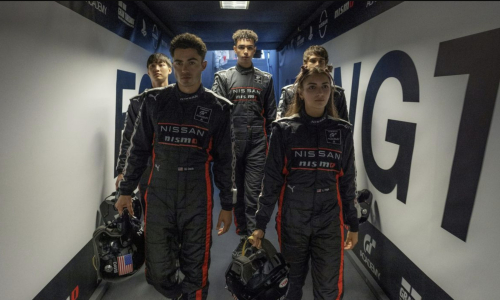- Best Movies
- Gran Turismo

-
Director:
Neill Blomkamp
-
Release date:
August 25, 2023 (in the United States)
-
Distributed by:
Sony Pictures Entertainment
Features Review
The journey from video games to the big screen has often been treacherous, but Gran Turismo elegantly navigates this precarious transition. The film, itself, is a high-octane showcase of Sony’s flagship racing franchise with an underlying heart-rending narrative.
The Real-Life Inspiration
Gran Turismo intriguingly chooses to base its storyline on the real-life progression of Jann Mardenborough, a young British teenager whose virtual hobby turns into a pulsating professional racing career. Archie Madekwe embodies Jann with likable ease, portraying him as an everyday teenager with extraordinary talent.
The key to the success of this narrative lies in its relatability factor - the transformation of a video game enthusiast into a skilled professional racer resonates profoundly with gamers who may dream of a similar pathway. This is particularly highlighted as the film traces Jann’s evolution, starting from his normal adolescent life filled with joystick-controlled turns and virtual victories, up until his big break in the real racing world.
This trajectory is not without its share of drama and resistance. Djimon Hounsou adds a compelling dynamic as Jann’s doubtful father, who believes that exceptional video game skills do not equate to real-life racing prowess. This well-intentioned skepticism produces an engaging emotional tension and carves out a resonant familial subplot.
Albeit the film tweaks certain events for cinematic appeal, the overall portrayal of Jann Mardenbourough’s journey from a virtual to a real race track illustrates an inspiring Cinderella story for the digital age. This human, real-life component lends the film a certain authenticity, transforming it into more than just a vehicle for glamorous product promotions.
The Power of Product Placement
Unveiling itself as more than just a racing movie, Gran Turismo demonstrates an innovative approach to product placement and brand integration. The way the film markets the very source of its material, the Gran Turismo video game franchise, is both ingenious and prominent. It doesn’t shy away from promoting the game’s advanced features and stunning graphics, subtly reminding the audience of its commercial roots with PlayStation.
One cannot ignore the strategic introduction of Danny Moore, the Nissan executive played by Hollywood veteran Orlando Bloom. Bloom’s character, loosely based on GT Academy founder Darren Cox, defends the idea of transforming video gamers into professional racers, asserting the game`s extraordinary realism. This storyline cleverly covers the interests of the corporate world, with the gaming industry and automobile manufacturers painted in a promising and ambitious light.
The Blomkamp Touch
Neill Blomkamp, hailed for his artistic vision in the realm of science fiction, takes a courageous leap into new territory with Gran Turismo. The mark of Blomkamp`s directorial caliber is hard to miss, even if his handling of the racing genre causes some initial skepticism among audiences. His choice to fast-track key scenes, like Jann`s first driving experience, might initially come across as surface-level treatment for a crescendo moment, and the choreography of an early police chase presents a jumble for the viewers.
However, Blomkamp's ability to rebound is remarkable. He ably navigates the complexities of race sequences as the movie progresses. The crescendo of speeding cars, rivalries, and heart-stopping climaxes is beautifully captured, harnessing the adrenaline rush inherent to the sport and replicating the essence of the video game. Blomkamp`s signature flair shines through particularly well in the freeze-frame stylization of position changes, successfully merging the authenticity of a real-world race with the pixel-perfect precision that PlayStation gamers are familiar with.
Furthermore, his execution of a critical crash scene is dramatic and potently majestic, bringing an unexpected dimension to the adrenaline-fueled spectacle. The introduction of these gut-punching elements, right before the final act is yet another testament to Blomkamp's masterful storytelling. His creativity enriches Gran Turismo with a kinetic reliance on action, making it a race to remember.
Blomkamp's successful transition from his typical worldbuilding and allegory-driven narratives to a video game adaptation is a testament to his versatility as a filmmaker. His journey to direct Gran Turismo may have veered off the conventional track, but his unique approach undoubtedly brings something fresh to the table. His contribution is crucial in amplifying the realism and excitement Gran Turismo exudes, fusing the memorable aesthetics of the game with the raw emotions of a live sporting event. His work on Gran Turismo, in essence, redefines what it means to adapt a video game into a cinematic universe, setting the bar high for future adaptations.
Conclusion
Despite injecting some inventive storytelling elements, Gran Turismo`s primary strength lies in its clever fusion of real-life racing and its video game predecessor. It is a film that thrives on adrenaline and commercial branding, effectively combining the two for a captivating cinematic ride.
Pros:
- Effective interlacing of the real-life racing world with the video gaming industry.
- Impressive performances by the cast, especially David Harbour and Archie Madekwe.
- Unique product placement and marketing strategy, subtly embedding products into the storyline.
- Compelling race sequences that offer an immersive experience.
Cons:
- Tendency to occasionally resort to familiar sports-movie clich`s.
































